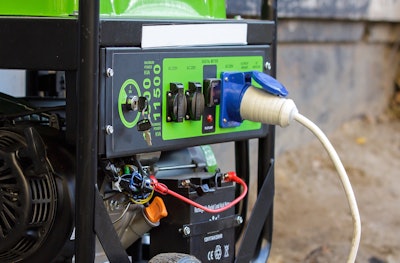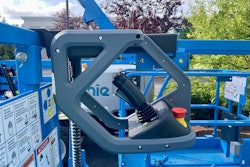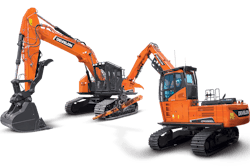
Generators, engines, and battery technologies are the key to getting the job done, even if the work is at a remote jobsite without connection to the grid or someone’s backyard. As the industry continues its efforts in sustainability goals, OEMs continue to develop the machines to generate the power necessary to get the job done. A look at these sectors can be an energizing conversation.
To learn more, Rental connected with several industry experts for their insights into the state of the power generation industry, including generators, small engines, and electric.
On the gas/diesel-powered side of generator rental, manufacturers are noticing a trend toward fuel injection. One, for regulatory purposes. The Consumer Product Safety Commission proposed a regulation that limited the amount of carbon monoxide from a machine that could potentially impact the generator market. That’s if the proposal passes. Barry DlugaszAmerican Honda Motor Company Inc.
Barry DlugaszAmerican Honda Motor Company Inc.
Second, customers. For those who use their generator every day and regularly refuel the tank, it’s not a problem. It’s more for those who aren’t. Barry Dlugasz, director, Honda Power Equipment Sales, American Honda Motor Company Inc., explains, “Gas doesn’t last long…but in a pressurized system, you can usually fire [the generator] up on the first pull after leaving gas in it for extended periods. For the occasional user, that’s where that technology falls in.”
Read the full exclusive interview with Blugasz at ForConstructionPros.com/22942804.
One insider tells Rental of three other growing trends in generator rentals:
- Driven by the size limitations of Tier-4 Final engines of an increase in paralleling multiple generators to achieve higher power nodes.
- More emphasis on properly sizing generators to the job at hand in order to further prevent wet stacking
- Third, the continuing adoption of hybrid generators combining diesel and battery energy storage systems
- Finally, the use of telematics providing rental businesses with the insight they need on status, location, and preventative maintenance data.
 Bobby RankerBobcat Co.
Bobby RankerBobcat Co.
Read the full exclusive interview with Ranker at ForConstructionPros.com/22942693.
For Ben Froland, the product manager of power generation at Hatz Americas, it’s a return to practical solutions. Where a lot of attention went to full electrification, like Ranker, he believes the hybrid generator will become more prevalent.
That said, diesel is the undeniable 500-lb. gorilla in the room — diesel will continue to play an important role in the industry.
 Ben Froland, Product Manager - Power GenerationHatz Americas
Ben Froland, Product Manager - Power GenerationHatz Americas
Read the full exclusive interview with Froland at ForConstructionPros.com/22942767.
If we’re understanding correctly, the idea behind the small engine regulations in California is to take the small engine out of the hands of the general consumer. It’s hard to say right now whether (or how) this may impact the equipment rental industry in years to come.
That said, the internal combustion engine remains a practical solution for many of the problems renters come into your shop to solve. It’s also worth mentioning that the battery-powered equivalents of these light equipment solutions are proving themselves further with each innovation.
 Tyler RickettsAmerican Honda Motor Company Inc.
Tyler RickettsAmerican Honda Motor Company Inc.
“One of the primary maintenance challenges for rental fleets has been carburetor-related issues, especially due to the quality of today's fuel and equipment storage patterns,” says Ricketts. “To address this, Honda has increasingly implemented fuel injection technology across our product lines. Fuel injection significantly reduces common fuel-related problems and contributes to more consistent engine performance, particularly in seasonal or infrequently used equipment.”
Read the full exclusive interview with Ricketts at ForConstructionPros.com/22942699.
Dylan Rewoldt, director of sales at Vanguard Commercial Engines, is also seeing changes in the U.S. small engine market. The demand for high-performance gasoline engines, coupled with the limited storage capacity to purchase equipment, is leading more contractors to rent the needed equipment to serve their customers.
Even as electric options expand, innovation in small gasoline engines isn’t running idle. Manufacturers like Vanguard are considering their equipment rental customers and what they can do to maximize value in durability, reliability, maintenance, and lowering TCO.
“A major focus has been on bolstering engine durability and uptime,” says Rewoldt. “We've engineered our commercial engines…with features like our Cyclonic Air Filtration system, which can extend air filter replacement intervals up to an impressive 600 hours. This directly reduces downtime and keeps equipment out earning revenue.”
 Dylan RewoldtVanguard Commercial Engines
Dylan RewoldtVanguard Commercial Engines
“They also provide rental customers with more reliable starting in diverse conditions, consistent power delivery, and improved fuel efficiency throughout the rental period,” says Rewoldt. “For rental businesses, the primary focus remains on robust serviceability to keep equipment operational and minimize downtime.”
Read the full exclusive interview with Rewoldt at ForConstructionPros.com/22942806.
The demand for electric and battery-powered equipment continues to grow. Our insiders note that this demand is being driven by environmental initiatives, a low TCO, noise pollution, and safety.
 Tim BossmanTrojan Battery
Tim BossmanTrojan Battery
Read the full exclusive interview with Bossman at ForConstructionPros.com/22942770.
Likewise, Athan Tsokolas, product manager at Vanguard Commercial Lithium-Ion Batteries, also notes this growth in electric assets as more customers request electric-based equipment.
 Athan TsokolasVanguard Commercial Lithium-Ion Batteries
Athan TsokolasVanguard Commercial Lithium-Ion Batteries




